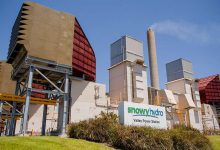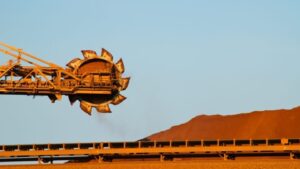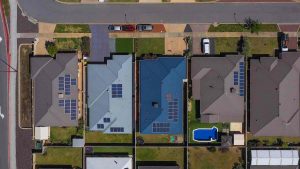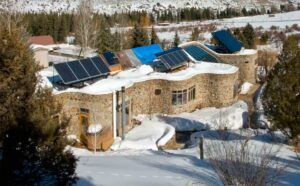The Morrison government has given environmental approval for the construction of a new $600 million gas-fired power station in the Hunter region, a plan criticised for being expensive, unnecessary, and locking in the increased use of fossil fuels.
The Kurri Kurri gas generator, to be built and operated by the federal government-owned Snowy Hydro, has been granted federal environmental approval, clearing the way for the taxpayer-funded project to commence construction.
Federal environment minister Sussan Ley made the announcement on Monday – ahead of the first parliamentary sitting week for the year – and it follows planning approvals granted by the NSW government in December.
Ley said the project would proceed with a requirement that it must satisfy the conditions imposed by the NSW state government during the earlier planning approval process.
“This thorough bilateral assessment with NSW has paved the way for the development and operation of this new critical infrastructure in a way that sensitively manages, protects and rehabilitates the environment,” Ley said.
However, the project has been slammed by environmental groups and senior energy market analysts who have labelled the project as “dirty, unnecessary and expensive.”
Energy expert and member of the Climate Council, Dr Madeline Taylor, said the emergence of lower-cost clean energy technologies created the genuine prospect the Kurri Kurri gas generator could become a stranded asset, leaving Australian taxpayers exposed to the investment risk.
“As renewable energy and storage technologies become cheaper by the day, this short-sighted investment in a new gas-fired power station, built with taxpayer money, makes no sense from an energy or economic perspective, and will likely end up as a stranded asset,” Taylor said.
“We need a total transformation of our electricity system based on renewables and storage technologies. Gas for electricity generation is often expensive, inefficient, and not commercially viable.
“At a time when the world is turning away from gas-fired electricity and embracing renewables, Australia could rapidly decarbonise and become a renewable energy superpower, but instead, public money is being funnelled into a project potentially representing a liability to our clean energy future,” Taylor added.
Snowy Hydro will construct the Kurri Kurri generator after receiving a $600 million capital injection from the Morrison government to fund the project.
The Morrison government decided to proceed with the project after having claimed that at least 1,000MW of new dispatchable generation capacity would need to be built to maintain reliable supplies of electricity after the closure of the Liddell power station – despite energy market regulators insisting the actual new-build requirement was just a fraction of that amount.
Gas generators supplied just 1.5 per cent of New South Wales’ electricity supplies in 2021. The market share for gas in New South Wales has collapsed since 2013, when it reached 6.5 per cent for the year, as the growth of lower-cost supplies of wind and solar pushed it out of the market.
Business case documents released by Snowy Hydro suggest the Kurri Kurri plant may operate for the equivalent of just two per cent of its rated power output across an entire year, meaning the project will be reliant on periods of higher wholesale electricity prices to generate sufficient revenues to be viable.
Chief executive of the Clean Energy Council, Kane Thornton, said that a big battery project would deliver better outcomes for consumers, while avoiding the need to be supplied by fossil gas.
“The Kurri Kurri plant is only expected to run for about one week of every year. When battery storage can deliver a cost saving of 30 per cent while delivering greater flexibility and significantly reducing emissions intensity, it makes no sense to be spending taxpayer dollars on this fossil fuel project,” Thornton said.
“It sends the wrong message to clean energy investors and to communities at a time when the International Energy Agency says that there is no space for new fossil fuel developments if the world is to reach net-zero emissions by 2050.”
Gas market analyst, IEEFA’s Bruce Robertson, said progressing with the new gas plant would ultimately lead to higher electricity prices for consumers by forcing unnecessary and high-cost generation capacity into the grid.
“The Australian Energy Market Operator has said we do not need any new gas-fired power plants, the electricity they produce is very expensive and producing more expensive electricity will force up the price for consumers,” Robertson said.
“The Kurri Kurri gas plant comes at great cost to the Australian taxpayer who will be subsidising this white elephant.”
After initially criticising the Morrison government’s plan to build the new generator at Kurri Kurri, the federal Labor opposition has said it will instead back the project, on the condition that it is transitioned to hydrogen fuel as soon as possible.
Labor’s proposal – which could add a further $700 million to the cost of the project to convert the plant to run on hydrogen – has also been met with criticism. As Mountain outlined in a piece for RenewEconomy, hydrogen for power generation is currently one of the most inefficient uses of the fuel.
350 Australia Senior Campaigner Shani Tager called on the Morrison government to cancel the planned investment in the Kurri Kurri project, arguing that the construction of a new fossil fuel generator was incompatible with commitments to decarbonise Australia’s economy.
“If the Morrison Government had any sense, they’d pull the pin on this expensive, polluting gas power station that the market has said we don’t need. Instead, they’re pushing ahead, and we’ll all be left footing the bill,” Tager said.
“Not only is this burning public money, it flies in the face of climate science with the International Energy Agency saying there’s no role for new gas projects on the pathway to net zero emissions by 2050. Even the Liberals own energy market operator says this isn’t needed.”










